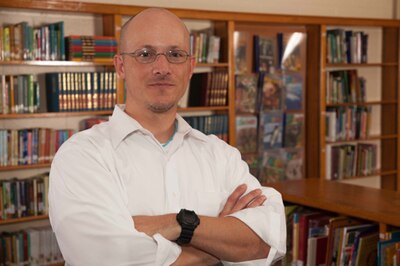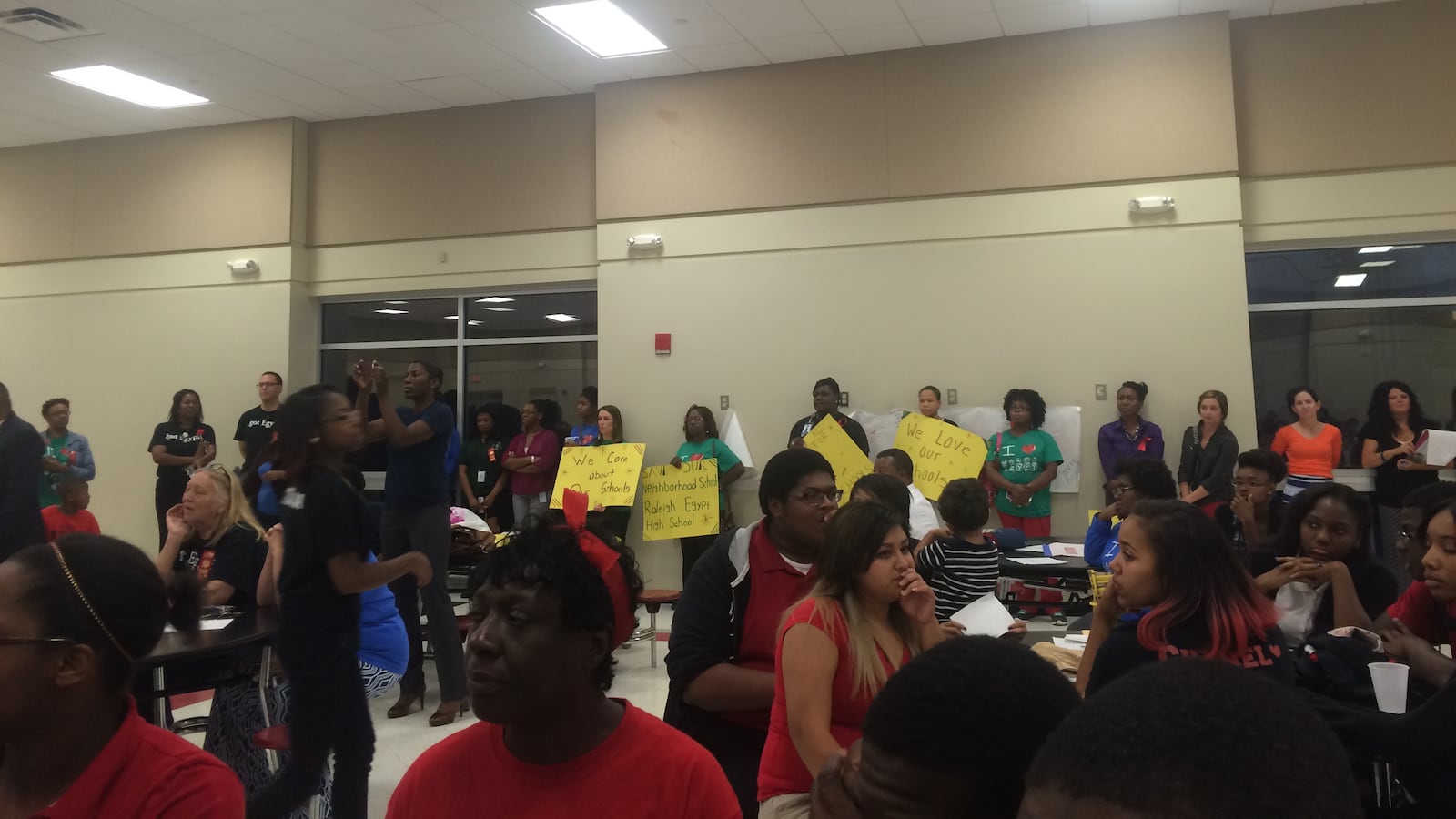Dozens of teachers are organizing in an attempt to stop the state-run Achievement School District from taking over more underperforming schools, a state-led strategy they say is flawed and has largely failed to improve student achievement.
The Shelby County Teachers Coalition plans to protest at several upcoming meetings, at which the local school board will make crucial decisions about what to do next year with its lowest performing schools. Options include closing schools, expanding Shelby County Schools’ own efforts to turn around low-performing schools — known as the iZone — or pulling several hundred students from schools co-located with ASD schools.
Coalition leaders said they oppose ending school colocations because endless changes are disruptive to students and parents.
The group is operating outside the Memphis Shelby County Teachers Association. “They’re supposed to be doing what we’re doing,” one of the members said.
“We want to do something radical but we have to be strategic because they (the ASD) are strategic,” said one of the group’s founders. Several of the group’s members spoke with Chalkbeat on the condition of anonymity because they said they feared losing their jobs.

While parents and teachers have protested the takeover process in prior years, this year’s protests have been particularly hostile and well-organized, drawing media attention and politicians’ support. At a series of meetings last week organized by the ASD, teachers passed out glossy pamphlets comparing their schools’ test scores to those of charter schools. They also fed questions to students and parents to ask charter organizations. When the charter officials attempted to answer the questions, teachers frequently shouted them down.
That especially frustrated ASD and charter officials who said the teachers were drowning out the parents’ voices as well.
It’s hard to forecast what sort of impact an organized effort against the ASD might have. The state district’s ability to take over and operate schools academically ranked in the state’s bottom 5 percent, or to hand them over to independently-run charter organizations, is protected by state law.
But after years of mixed academic results in ASD schools, an SCS board members said recently they will push to change that law in this upcoming legislative session. It’s an effort the teacher coalition’s leaders said in interviews they will get behind.
Almost a full third of the district’s schools performed so poorly in recent years that they qualify to be taken over by the ASD. The ASD plans to take over several more schools next year.
ASD officials said that while they have had growing pains, they have also seen successes and their presence has spurred rapid improvement in the traditional public schools. They’ve said this year’s “matching process” incorporated SCS officials’ input and considered a slew of other factors that they predicted will lead to future success.
“We have an incredibly high bar for authorizing our charters, and the only operators going through matching are those with proven results in Memphis or other cities, or new operators with proven results as educators,” said Elliot Smalley, the district’s chief of staff said in an email Wednesday.
The teacher coalition is made up of a core group of teachers from schools that have been part of the ASD takeover process since the state legislature created the district in 2012. Over the years, the group’s leaders told Chalkbeat, they have studied the law that created the ASD, the state’s charter laws, and the ASD’s existing schools’ academic records. They have also spoken with several teachers, parents, and students who currently work at ASD schools or who have left ASD schools.

The group argues that dramatic budget cuts by Shelby County Schools in recent years have resulted in large class sizes, few extra-curricular activities and outdated textbooks. These cuts are especially acute at the district’s neediest schools, where a disproportionate number of students qualify for special education, are hungry, and whose parents lack the time or wherewithal to promote their children’s academic success.
To compare these schools’ test scores to suburban or rural schools with more stable environments and resources is simply unfair, the group’s leaders told Chalkbeat. Further, teachers said, for the state to intervene and hand the schools over to charter schools and make teachers reapply for their jobs at the schools causes more chaos in already chaotic environments.
The coalition leaders pointed out that several of the schools the ASD has taken directly over have performed worse than they were performing when they were operated by Shelby County Schools. However, some of the schools the ASD has turned over to charters have performed much better.
“We appreciate the (teacher) coalition’s emphasis on results—that’s the essence of this work, ensuring students learn and succeed,” the ASD’s Smalley said. “It’s far too early to draw major conclusions about our results—we’ve only run schools for two years and two-thirds of our schools were in just their first year last year—but if you look at our first neighborhood charter schools matched with neighborhood priority schools (two years of data), they’re showing real signs of promise, and they’re doing considerably better than the schools under consideration for matching.”
The group said this year’s takeover process is especially confusing. Teachers said when two charter organizations pulled out of the process last week because of capacity concerns, it left the school communities with which they were going to be matched with confused, demoralized, and uncertain about their future. But coalition members said the pullout “energized” the activists.
The ASD plans to announce which schools it will take over in the beginning of December.
Several dozen teachers have expressed interest in joining the group in recent days and the founders say they plan to eventually reach out to parents and community activists, too. They’re keeping other plans under wraps right now.
The ASD, meanwhile, is moving forward with its plans to engage community members and parents.
“So much of this conversation is right—people asking great questions, voicing support for their schools, and expressing deep emotions about education, schools, and community,” ASD superintendent Chris Barbic said in an e-mail to his community Monday. “We don’t believe authentic community engagement is a neat and tidy process. Not if it’s done right. It’s totally understandable that last week’s meetings spurred people’s emotions and generated good, hard questions. We commit to standing with communities and, together with our operators, answering these questions and listening to parents’ input.”


